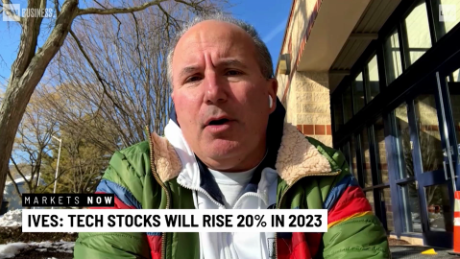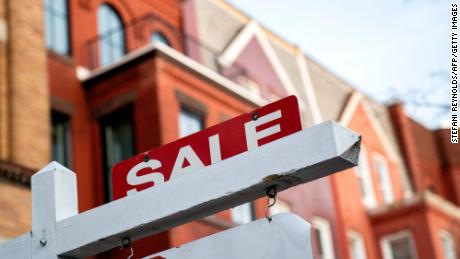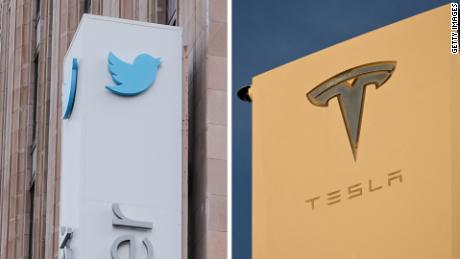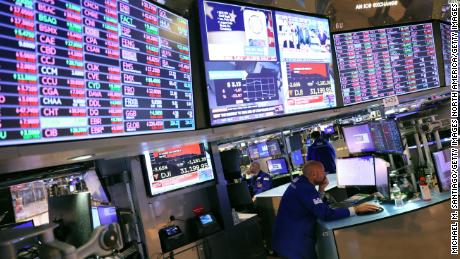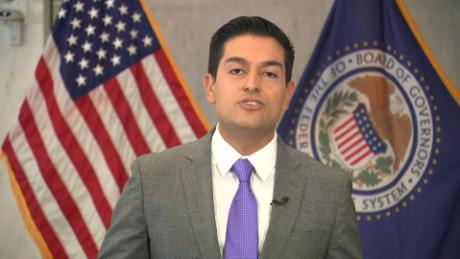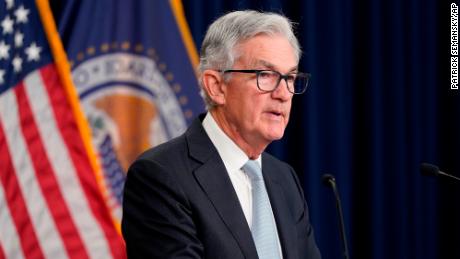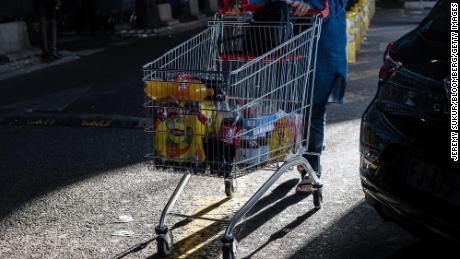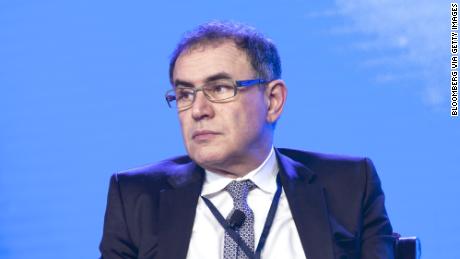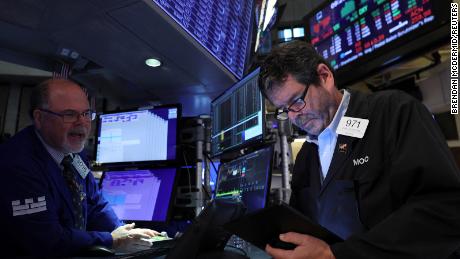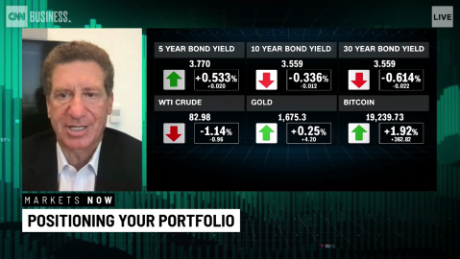New York (CNN Business)Sheila Bair was one of the few American regulators who sounded the alarm about the housing crisis a decade ago. Now, she worries the post-crisis guardrails are being dismantled at precisely the worst time.
Bair, the FDIC chairwoman from 2006 to 2011, was instrumental in creating stricter checks and balances to prevent another Great Recession. She has called out regulators for dialing back certain elements of the 2010 Dodd-Frank financial reform law and failing to crack down on risky lending.
"Now is absolutely the wrong time to be deregulating," Bair told CNN Business. "I don't know why they want to do this. It just makes no sense."
Bair said the nation's financial watchdogs should be doing exactly the opposite as cracks emerge in the longest economic expansion in American history.
Bair doesn't have the typical profile of a regulation hawk. She is a lifelong Republican, appointed to the FDIC by President George W. Bush.
Her comments come as the risk of a recession has surged to levels unseen since the last downturn. Although few expect a repeat of the Great Recession, even a mild recession will cause bankruptcies, foreclosures and auto loan defaults that will test the resilience of bank balance sheets.
Are banks ready for the next recession?
America's banking system is clearly on stronger footing than it was a dozen years ago.
Lenders have been forced to stock up on capital, curtail risky activities and avoid short-term funding that can vanish in a crisis.
"Banks are safer, but I don't think they are safe enough," said Bair, who was among those who warned in 2006 of the "troubling" proliferation of dangerous mortgages that would later blow up during the meltdown.
There is sharp debate over just how much the post-crisis rules have been rolled back.
For example, the parts of Dodd-Frank that require big banks to undergo stress tests and to hold a certain amount of liquid assets are still in place, argues Peter Nerby, senior vice president of the financial institutions group at Moody's Investors Services.
Yet regulators recently dialed back the annual stress tests, making it easier for big banks to pass them. And large regional banks with between $100 billion and $250 billion in assets now only need to take the tests every other year.
"Yes, they've tweaked it a little bit, but the big architecture is staying in place," Nerby said. "If we saw a wholesale loosening of regulation, that would be a ratings issue for Moody's. But we don't see that yet."
Leveraged lending concerns
Bair believes those tweaks are inappropriate and she expressed concern about the boom in leveraged lending, loans made to companies with weak balance sheets.
Encouraged by extremely low rates, there has been a surge in loans to weaker companies, many of which are losing money.
"You can see the instability growing," she said. "There is too much leverage in the system. Whether the capital is there to absorb those losses is an open question."
The FDIC has said it is closely monitoring the risks linked to the leveraged lending boom.
"If the economy turns, we will have a few problems on our hands -- and leveraged lending would be one of them," current FDIC chief Jelena McWilliams told CNN Business last month.
McWilliams stressed that most leveraged loans are held outside of the banking system, although she acknowledged that banks do face indirect exposure because they lend to the nonbank firms at the heart of the boom.
"In 2008 and 2009, everyone said that risk had moved off banks' balance sheets. But it hadn't," Bair said. "It always comes back."
Banks are posting record profits
Supporters of deregulation argue the pendulum had swung too far in the direction of regulation, stifling the banking industry at large and especially community banks that had little to do with the crisis.
However, US banks, especially large ones, are once again minting money.
Bank of America (BAC)and JPMorgan Chase, (JPM)the two leaders of the US banking industry, reported record quarterly profits over the summer. They weren't alone. Collectively, the nation's 5,303 FDIC-insured commercial banks and savings institutions earned a record $62.6 billion during the second quarter, according to the FDIC.
The blockbuster profits cast doubt over the urgent need to tweak the rules in the first place.
Still, FDIC and the Office of the Comptroller of the Currency approved changes last month to the Volcker Rule, the controversial legislation that bans financial firms from making bets with their own funds. The industry has long argued that the Volcker Rule was too complex and hurt market liquidity.
The moves will simplify the rules for midsize banks and ease the compliance burden on big banks, giving them the ability to police themselves.
"Bank regulators should be focused on raising capital, not getting rid of the Volcker Rule or stress test requirements," Bair said. "It certainly enables banks to take more risks."
Lax regulation contributed to the last crisis
Eleven years after the Great Recession started, some fear the lessons of the last crisis have already been forgotten.
Martin Gruenberg, currently a member of the FDIC board and who succeeded Bair as its chair from 2012 to 2017, voted against the Volcker Rule changes. In a statement last month, he said the changes "severely" narrow the scope of financial instruments subject to the regulation, freeing up big banks to make speculative bets.
Moody's seems to agree, saying in a report: "The changes have the potential to encourage some banks to take greater risks, a credit negative."
Still, federal regulators stress that the tweaks to the Volcker Rule are meant to "tailor and simplify" the regulation, not knock it down.
Joseph Otting, the Comptroller of the Currency, said in a statement last month that the changes "simplify the rule in a common sense way that preserves the safety and soundness" of the system and "eliminates unintended negative consequences of the prior rule."
"There has been an attempt to grab as much regulatory safeguard as possible and instantaneously deconstruct it," said Sarah Bloom Raskin, a former Federal Reserve governor who is now a fellow at Duke University researching the relationship between regulation and financial markets.
Patricia McCoy, a former official at the Consumer Financial Protection Bureau, accused some regulators of doing the bidding of banks.
"They are apparently carrying out the wish list of industry," said McCoy, who is now a professor at Boston College Law School focused on regulation.


